''The European Union supports the scholarship dedicated to Tatar letters not because these Tatar letters have some secrets''
How to get €1,5 million from the West? Interview with historian and expert in Islamic studies Alfrid Bustanov: Part 1
It turned out to be easier to get a big scholarship for scientific research in the West than in Russia. At least for Russian scientist and columnist of Realnoe Vremya Alfrid Bustanov who won €1,5 million. In an interview to our online newspaper's correspondent, he told what this money would be spent on and replied to all possible complaints about the ''not patriotic way of getting money from the European Union''.
''It was a kind of the first attempt, and it turned out successful''
So, you've got a scholarship. And the first question is how long have you been working with western funds?
I began to get Russian scholarships quite a while ago when I was studying at an Omsk university. My research adviser Svetlana Korusenko tried to push students in this direction from the very beginning, so that they would get independent financing and work for this money later, go on expeditions and so on. In 2006-2007, I got the first scholarship from the Russian Humanitarian Scientific Foundation for trips, research. The RHSF doesn't exist now, it merged with another foundation. And I got the aid from it almost once in two years since then: first to study the history of Siberian Bokhara citizens, Islam in Siberia, manuscripts of Siberians Tatars and then for other topics. From the second grade at university, I wanted to take a postgraduate course and I looked for a job. I came to Kazan first. I got acquainted with Mirkasym Usmanov, asked if I could be his pupil. He replied: ''I'm going to die soon, don't count on me. But I have pupils, you can work with them''…
''I'm going to die soon?'' as if he looked into his crystal ball.
Yes, he really died one year after our meeting. Then I moved to Petersburg for internship and met with Turkologist Sergey Klyashtorny. And he said to me I was welcome if I wanted to live in Petergof and go to the centre every day, to have a postgraduate scholarship at 1,900 rubles. And he added all his colleagues were 80 years old. ''This is why,'' he said, ''if you want to do science and grow, you'd better going abroad, to Germany or somewhere else.'' So it turned out I got a small scholarship to learn the German language by the DAAD (Editor's Note: Deutscher Akademischer Austauschdienst, German Academic Exchange Service). I went to the city of Freiburg, learnt the language during a month and asked my colleagues there, of course: ''I want to study Islamic studies, who chairs this sphere here?'' I was said Michael Kemper was the main expert in Islamic studies in Russia among European scientists. I was given his e-mail to write to him, he could answer me. I wrote him and got an answer: ''If you want to get acquainted, come and let's talk.'' I bought a ticket to Amsterdam from Freiburg with €5 in my pocket. We got acquainted, talked. And some time later, Professor Kemper sent me information he had won a scholarship to study Soviet Eastern studies and was looking for postgraduates. I submitted my documents for this open competition and won. This is how my relations with western science began. After presenting my thesis, I came to Kazan, found a job as a librarian at Kazan State University. Almost one year later, I got a professorship of European University in Saint Petersburg.
When was it?
I presented my thesis in February 2013 and came to Kazan in spring. In 2014, I was appointed to a professorship in History of Islamic Peoples in Russia at European University. I had already got money from TAIF to open a personal professorship by this time. Such a practice exists at western (European and American) universities when donors open a professorship at universities in different disciplines, for example, to study technical processes, the humanities. Then the professorship is named after the donor, sometimes it's given a person's name.
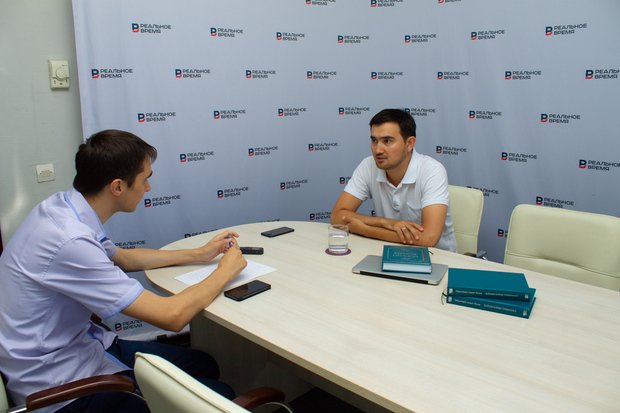
It's been the first time I've submitted an application to a western foundation myself. I applied to Russian foundations only, in fact. And it was a kind of the first attempt, and it turned out successful. It's scholarships awarded by the European Union every year for scientific research
Is the donor a sponsor?
Yes, it's who gives money to finance a project. It's sometimes individuals, families, private or public companies. For instance, our university has a Coca-Cola professorship, Severstal professorship. It's a widely spread practice in the western world that's making the first step in Russia…
… in private universities?
Yes, sure. In my case, the university got the money from TAIF, opened a competition for the position, I decided to try my luck, and I was hired ''from the street'', so to speak. I've been at European University since then. At the same time I work at the University of Amsterdam as a postdoc – there is such a position at western universities, which means work after completing a PhD. It's usually used to finish a book (that's to say, a person wrote a thesis and turns it into a book later).
Haven't you ever worked with western foundations?
It's been the first time I've submitted an application to a western foundation myself. I applied to Russian foundations only, in fact. And it was a kind of the first attempt, and it turned out successful. It's the scholarships awarded by the European Union every year for scientific research. Only the researchers affiliated with universities inside the European Union can apply for the scholarship.
Did you apply for the scholarship on behalf of the University of Amsterdam?
Yes, as an employee of the University of Amsterdam. I feel bad saying about the importance of this victory. But it's one of the most prestigious scholarships existing in our sphere. We have colleagues, leading specialists in the history of, for instance, Middle Asia, Paolo Sartori who got the scholarship like mine four years ago. He works in the Institute of Iranian Studies of the Austrian Academy of Sciences.
Are the scholarships awarded every year?
Every year. There have been submitted about 3,200 applications this year, only about 12% of them were approved, that's to say, got the scholarship. In general, it's very complicated to get the scholarship: there is an independent blind review. I got seven reviews from specialists in my sphere. And the majority of the reviewers graded ''excellent''. The whole procedure is divided into three big blocks. The first one is zero block – the preparation of the application itself: there are certain forms, you fill them in, define the goal of your project, its novelty, what sources will be used, the method. And the idea is the following (the main requirement of the sponsor): the scholarship must open a new perspective in research. It really must be something that nobody has ever done. At the same time, there must be a high risk: high risk – high gain. In other words, the zero part is the preparation of the project.
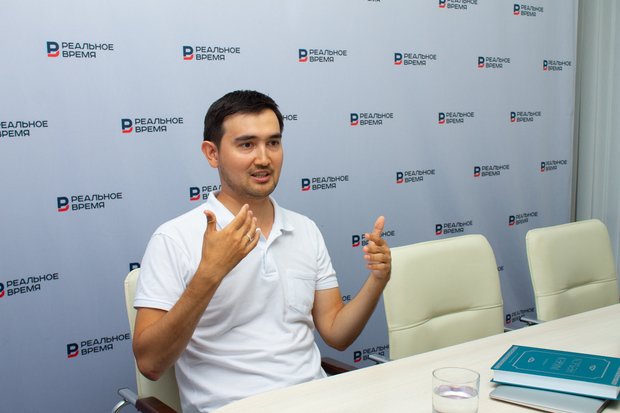
You need to convince people who can know nothing about the sphere you deal with of the research's importance. Some of them have read the project, others haven't. And by and large, the presentation must be exciting in itself. A show when you should wave your arms and convince emotionally is half the battle
The first part, in fact, follows the zero one: the application is considered by experts, moreover, not the whole application but only the first five pages with the key concepts or, more precisely, the task, why it's important, the meaning of the project in the existing historiographic situation… And the colleagues judge if this can be supported or not. And 70% of applications are sorted out at this stage. Then when those who have been selected are invited to Brussels. I've been to the capital of the European Union this May and presented my project there, in the headquarters. You come at the appointed time, nervous people are sitting there who have applied for this scholarship like you. Then the organisers invite you to a big room: there is an oval table there, about 30 people are sitting at it. You have watches on the one side and a screen on the other. And you need to present your project and answer the questions the commission will have for 20 minutes.
Is it in English?
In English, of course. As it's the European Union, experts are completely different, it's the difficulty. In other words, you need to convince people who can know nothing about the sphere you deal with the research's importance. Some of them have read the project, others haven't. And, by and large, the presentation must be exciting in itself. A show when you should wave your arms and convince emotionally is half the battle. On the other hand, it must be obvious it's serious, it's a fruit of a very serious work. The difference between the presented projects is in their quality – a tiny fraction. Here a subjective factor begins: you can forget something in your speech that you learnt by heart, you can wrongly have chosen a slide in the presentation – this all influences the final result. Alhamdulillah (Editor's Note: Thank God), I've just recently got the letter that says: ''Congratulations, Dr Bustanov, you've won the scholarship.'' Now a big amount of important job to sign agreements, arrange everything is waiting for us.
''There have been allocated €1,5 million this year''
Alfrid, could you explain what your project is about?
Our project is called The Muslim Individual in Imperial and in Soviet Russia. The gist of our project is that we want to get away from studying groups, communities, institutes linked with history of Islam in Russia, certain regions and switch to studying a range of possibilities of behaviour certain people had: to completely adapt to the Soviet lifestyle and not to lose their identity in a big city and to go on being Muslim even in Soviet conditions even if there isn't any mosque. It's a person's choice. And people anyway dwell on why they do so and what for. They can do it simultaneously. Someone can be a convinced communist and simultaneously write a religious treatise. And there are such examples. Our project undertakes the history of Muslims through texts about self-reflection like personal letters, diaries, autobiographies and even photos. We try to look at what a Muslim in Russia looked like, what elements he consists of, what a range of ideas and puzzles people living in the 19 th-20th centuries in the Russian Empire and the Soviet Union had through these sources.
Will you work alone or with helpers?
By the way, the matter of time and space is one of the important elements I'd like to dwell on. Our colleagues more often focus on one big period: after the opening of the Orenburg Spiritual Assembly in Ufa, before the revolution and after it, the period between wars, the WWII era, the era after Stalin. But we decided to choose a long period because history is about time. It's interesting to look at how the social process took place during a long time, how one built oneself amid a range of ideas and possibilities. We will perhaps be able to find out how these puzzles and the range of possibilities developed, how their components changed in a long period of time. And I want to believe we will be able to create a new view on the history of Muslims in our country outside institute and outside the binary of the state and believers through this research: ''there is that awful state that dictates limits and game rules, while Muslims always just react.'' In texts about self-reflection, we see that people really can co-opt game rules the state creates, they interpret them differently and in very interesting versions.
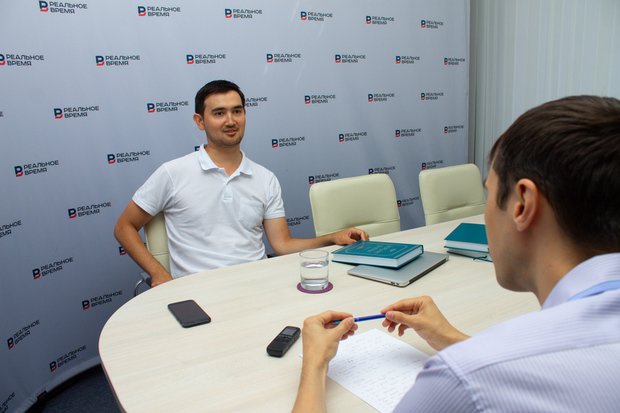
The gist of our project is that we want to get away from studying groups, communities, institutes linked with the history of Islam in Russia, certain regions and switch to studying a range of possibilities of behaviour certain people had
In the short run, we hope to open an international competition for two positions for postgraduates at the University of Amsterdam. One of them will study diaries left by Russian Muslims in both the imperial and Soviet period. The other postgraduate will study personal photos. And a photo is a very interesting source because it can be family albums, it's can be a whole layer of a person's vision because it was a hobby in the Soviet era, and photos were available. It's possible to look at the world with the eye of a certain person. If this person was an imam at mosque or mufti, how he posed himself, how others saw him, what notes he left on the back. We often see that photos were used as letters. There is a photo, for example, of a friend, and it's written in the Arab script on the front or back side: ''I send this photo to a such-and-such religious brother in eternal memory and so on.'' We hope we will be able to select the best specialists and work with them for five years. In addition, we will have a position of a postdoc. Usually, an already experienced researcher who will help us work with postgraduates and organise conference, work on joint monographs, print magazines and so on are hired. In general, getting this scholarship allows us to create a research group at the University of Amsterdam and work on an almost new field of research for five years and very actively develop there at an international level.
Has the scholarship been awarded for five years, right?
Yes, for five years.
And how much is it I wonder?
Each winner has been allocated €1,5 million this year. This sum includes salaries for postgraduates, the organisation of conferences, organisation of summer camps. We had a project we launched at European University – Islam in Russia summer camp. We hold it every year. The next fourth summer school will be in Penza.
''Science is an international affair''
Is it difficult to work with European foundations and get their scholarships amid the anti-western hysteria in Russia?
A TAIF professorship has existed at European University for 3 years. And TAIF isn't a western company, but the financing mechanism is the same. Such a type of donation allows to get decent conditions for research programmes at an international level. And we've been quite active during all these years: we have powerful Master's and postgraduate courses. People from other countries began to come here to deliberately study our Master's Degree in Islamic Studies: from Armenia, Kazakhstan, Uzbekistan. People deliberately come to take a postgraduate course with me. It's quite a good indicator, and it's been achieved thanks to the financial support of the professorship by TAIF. If one puts effort, it's possible to create good conditions for science in Russia, and there are precedents for it.
As for talks that someone is the fifth column and gets money, receives sweeteners from some western political forces, science is an international affair. It's impossible to do science having isolated from the rest of the world. There is no sovereign science. At least it won't be viable. One should participate in this kind of scholarship programmes. You see how your research and your profile are competitive on the international market. One thing is to get scholarships from the RHSF as a student and postgraduate…
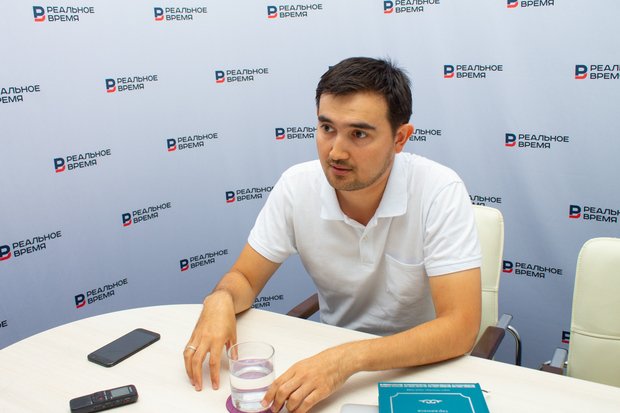
Science is an international affair. It's impossible to do science having isolated from the rest of the world. There is no sovereign science. At least it won't be viable
They are probably tiny in comparison with the €1,5 million.
The Russian Scientific Fund has opened now. And some of its programmes are comparable with the scholarships that one can get in Europe or America. But it seems to me sometimes it's harder to get a scholarship in the RSF than in the European Union.
Why? Because of the old boy network, corruption, personal links?
It feels so. I've applied to the RSF several times, nothing worked. In addition, the whole procedure is closed, that's to say, you get several reviews, they can be positive, but it seems the decision doesn't depend on it.
Do you mean transparency?
It's not transparent for participants. I don't understand Russian sponsors. And I've participated in a competition to get a scholarship in the European Union for the first time and immediately won. High professionalism is what I liked most. My colleagues scared me the commission could even rudely evaluate the application, they could say during the discussion: ''I don't believe a word, all you wrote doesn't make any sense.'' And you have to stay in front of the best 30 historians and say something in your defence or say nothing. There was no such thing in my case. On the contrary, the discussion was very professional and interested. At one moment, I even felt the colleagues who were sitting at the table were helping me. I started to answer, while the person who had asked the question began to nod and insert something in my reply. Or, for instance, due to the lack of experience, I included several Arab words and terms when I was answering questions. And a colleague asked what an ideal Soviet person looked like, if there was anything similar among Muslims. I said there is a notion of ''kamil insan'' – a perfect person. When I said ''kamil insan'', I even didn't have the time to translate, people in the hall started to say like: ''Yes, yes, we know.'' It's interesting when people have such a broad vision. It's especially pleasant when there is such a professional procedure. Of course, it's important to get the money. But it's very important to get feedback – the reaction of your colleagues, to look at your slips when were made up the application, what we did wrong, what was wrong in my CV, what I should pay attention to.
Unfortunately, this mechanism hasn't been so far completely created in Russia. If scholarship procedures were more open, it would be very important, of course. And it's simply a must-have in Tatarstan: its own open, professional scholarship programme that would award serious scholarships in science, art, the humanities, natural sciences should have appeared a long time ago. By the way, we tried to launch the business: we organised the Mardzhani scholarships for, by the way, foreign money again. The community of Finnish Tatars allocated €1,000 to study Tatar culture.
What happened to this scholarship in the end?
This scholarship has stalled a bit because it's anyway hard to expect such a large project as scholarship programmes to be financed by one source. We hoped wealthy people would take part in it having seen such an initiative. But it seems people don't understand knowledge is a very important tool. Those who possess knowledge, in general, can affect its formation, the way it's laid out: this moment is slightly falling behind at the Russian level, but it's collapsing in Tatarstan. Scientific research can't be let run its course, otherwise, whoever except regional forces will talk about everything about the republic in public. It's already happening. There is a sphere that people underestimate – it's scientific publications in leading English-speaking magazines. International science speaks English, someone comes to Kazan, does research and publishes it then in a magazine that everyone in the humanities, historians, all experts in Islamic studies read. Probably the ideas reflected there will somehow affect the way the Republic of Tatarstan or the Tatars look for the international scientific community, perhaps for a wider audience. This moment is very important. I'm not urging to control everything. We have two extremes: we either let it run its course or interrogate every postgraduate why he came, how it's in Iran (people are jailed for such things there). But there must be a clear policy, participation. You formulate the agenda, including through scholarship programmes. You say you will give a million rubles to study the Mishar dialect of the Tatar language. This means demand is stimulated – dialectologist suddenly become active. And this has been awarded for five years, there will be a lasting expectation. One should remember such things. Back to the bias, getting western scholarships, our researchers allegedly become betrayers…
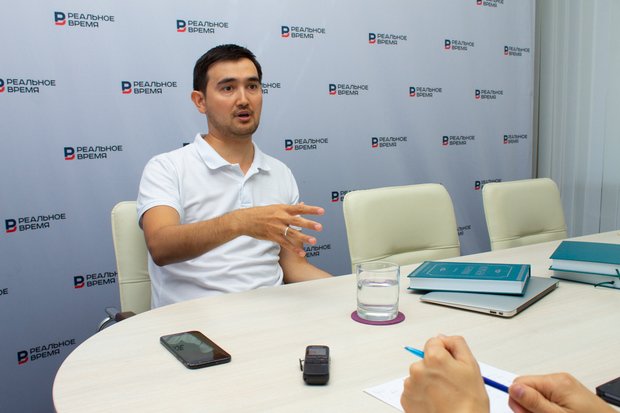
The European Union supports the scholarship dedicated to Tatar letters not because these Tatar letters have some secrets I can sell expensively but because we managed how the study of these letters will give humankind, the humanities a new view on the past
I would even ask in the following way: isn't there any attempt of the West to use soft power towards Russian Muslims or Russia? Why does the West finances¡ research of Tatars, Russian Muslims?
Any other project could have been chosen instead of me. The fact that we've been given the money means the recognition of the achievements we have and an advance for the future. The recognition that, firstly, the work that has been done until now was done well and that we promise we plan to do what is needed. And it was not evaluated by spin doctors who think: ''OK, we will develop something here.'' Colleagues from different countries evaluated it, some of them can be guessed by the reviews I got. They are very positive, even somewhat romantic. One of the reviewers wrote this project simultaneously was based on the legacy of the late Mirkasym Usmanov on the one hand, and, on Michael Kemper's school, on the other hand. And it's very warm words.
Did Michael Kemper write a review himself?
No, because it will be a partial view… Back to the question about the fifth column. Instead of discussing that our scientists get western scholarships and go abroad for ever, we'd better developing the same thing here and understanding the value of knowledge, including fundamental. The European Union supports the scholarship dedicated to Tatar letters not because these Tatar letters have some secrets I can sell expensively but because we managed to show how the study of these letters will give humankind, the humanities a new view on the past. And we will be able to see something important that will help us in the modern world.
Are there any scientific centres in Europe that study the Tatars, Russian Muslims?
Broadly speaking, that's to say, the Russian Empire, including the Caucasian region or Middle Asia, it's Paolo Sartori in the Austrian Academy of Sciences whom we already mentioned. He managed to create such a group around himself thanks to Starting Grant. He did research on Islamic Middle Asia starting with the 18 th century to the Soviet era inclusively. And they move in this direction very actively.
Judging by his surname, he's Italian.
Yes, he's Italian, he had been working in Germany for long, moved to Austria several years ago. There was a very active centre in Indiana (USA) until recently. People in the USA also did Middle Asian research. In general, some researchers interested in the topic linked with Muslims in the former Russian Empire work in different places. Someone is an expert in Islamic Studies, someone is a sociologist. By the way, many guys studied here, then went abroad and stayed here.
To be continued